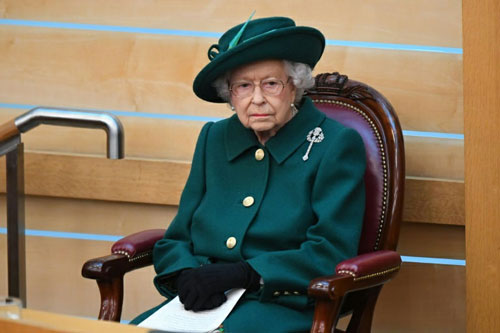On a rainy night in Hong Kong in 1997, Prince Charles read a message from his mother Queen Elizabeth II, as Britain handed back sovereignty of the territory to China after more than 150 years of UK rule.
On Monday, nearly a quarter of a century on, Charles will be present at another handover, when Barbados becomes the world’s newest republic, with an elected president—not the queen—as head of state.
The ceremony will not be on the same scale as in Hong Kong, when military marching bands and bagpipes provided the backdrop to a momentous occasion that was described as “the epilogue of empire”.
But the Caribbean island’s abandonment of constitutional monarchy is significant, not just for the monarch and her heir, but for the new republic—and others that may follow.
Joe Little, the managing editor of Majesty Magazine, said the declaration was a “natural progression” of a trend that began soon after the queen took the throne in 1952.
“I think inevitably it’s one that will continue, not necessarily in this current reign but in the next—and probably accelerate,” he told AFP.
Royal officials have said little about the end of nearly four painful centuries of British rule and influence on Barbados, which was a key centre in the slave trade.
“This is a matter for the government and people of Barbados,” Buckingham Palace said when the authorities in Bridgetown set out its intentions last year.
However, it sends a clear message that in the twilight of the 95-year-old queen’s reign, and when Charles, 73, succeeds, the British monarchy’s global reach is diminished.
In 1947, five years before she became queen, Britain saw the “Jewel in the Crown”—India—emerge as an independent republic.
After Elizabeth took the throne in 1952, independence movements swept Britain’s former colonies, severing ties to the crown that were bound by commerce and bloody conquest. But between 1983 and 1987, Elizabeth was still queen of an astonishing 18 countries.
Fiji (1987) and Mauritius (1992) have since become republics, following in the footsteps of Caribbean nations Dominica, Guyana, and Trinidad and Tobago in the 1970s.
In doing so now, tiny Barbados, with a population of just under 300,000, could start a domino effect in the queen’s 14 remaining Commonwealth realms outside Britain.
Professor Hilary Beckles, a Barbadian historian, called Monday’s event—on the eve of Barbados’ 55th anniversary of independence—”an historic moment” with far-reaching significance.
For Barbados, the Caribbean and all post-colonial societies, it represents freedom from the “tyranny of imperial and colonial authority”, and the “brutal legacy” of slavery and genocidal oppression, he said this week.
“History has given Barbados this responsibility to move forward into the 21st century” with pride, dignity and honour, he added, calling Tuesday “a democracy day”.
The queen has consistently been the most popular royal in Britain and beyond, and is seen as the symbol of the country post-war as well as the last living link to its imperial past.
When the succession comes, with the more controversial Charles lacking that history, experts predict the republican question will be asked with more urgency in Commonwealth countries—and even possibly in the UK.
Little said the push for an elected head of state was more than likely in places such as Australia and to a lesser extent Canada.
Australians last voted on the the issue in November 1999, but the proposal did not pass.
Graham Smith, from the anti-monarchy pressure group Republic, said Barbados’ move is “useful” to demonstrate that ditching constitutional monarchy can be done easily.
“It’s going to have a big impact,” he said. Jamaica in particular, where both main political parties back the idea of becoming a republic, could see it as a “prompt”, he added.
In Britain, a YouGov poll in May indicated support for scrapping the monarchy was low among older age groups, dropping to just 13 percent among those aged 65 and over.
In contrast, 41 percent of those aged 18 to 24 said they wanted an elected head of state.
Smith attributed that to changing attitudes to monarchy, a greater awareness about the legacies of colonialism and support for anti-racism movements and a fairer society.
“As the older generation starts to die, we’re going to see a big spike in support for republicanism,” he said.—APP










